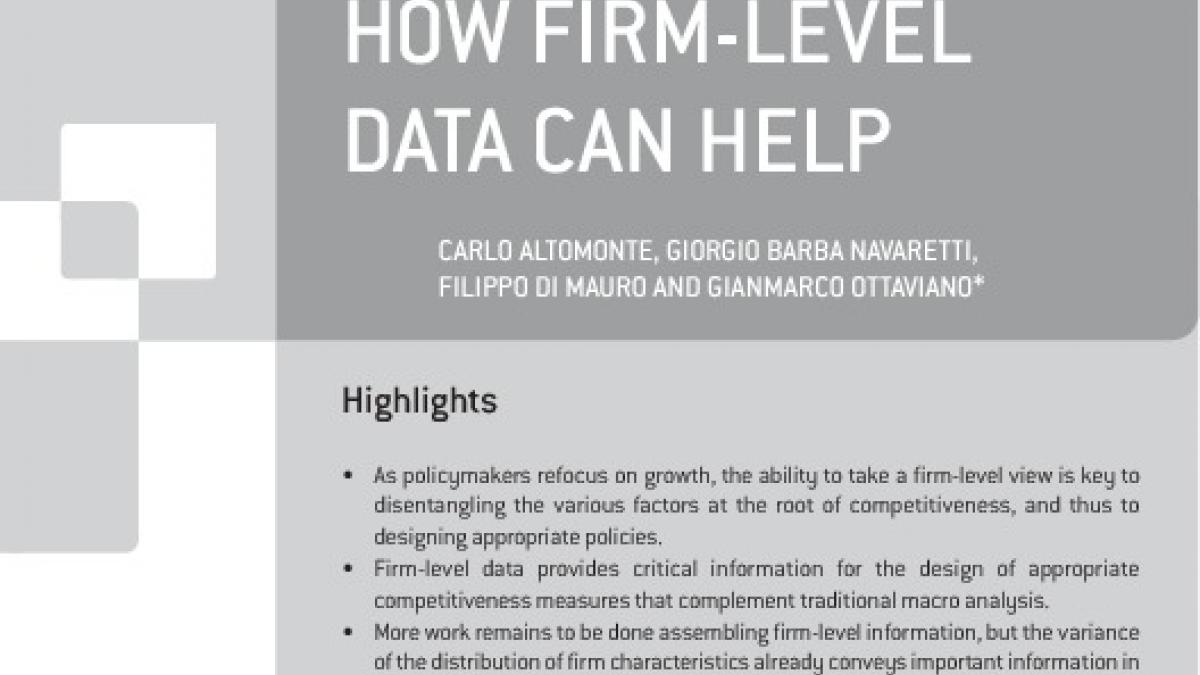Assessing competitiveness: how firm-level data can help
As policymakers refocus on growth, the ability to take a firm-level view is key to disentangling the various factors at the root of competitiveness,

As policymakers refocus on growth, the ability to take a firm-level view is key to disentangling the various factors at the root of competitiveness, and thus to designing appropriate policies.
• Firm-level data provides critical information for the design of appropriate competitiveness measures that complement traditional macro analysis.
• More work remains to be done assembling firm-level information, but the variance of the distribution of firm characteristics already conveys important information in addition to standard averages.
• New indicators should be developed to translate the distribution of firm characteristics into indicators of competitiveness designed to capture not only average performance but also the heterogeneity of firm performance.
This Policy Contribution builds on ongoing research within EFIGE (www.efige.org), a project to help identify the internal policies needed to improve the external competitiveness of the European Union.


